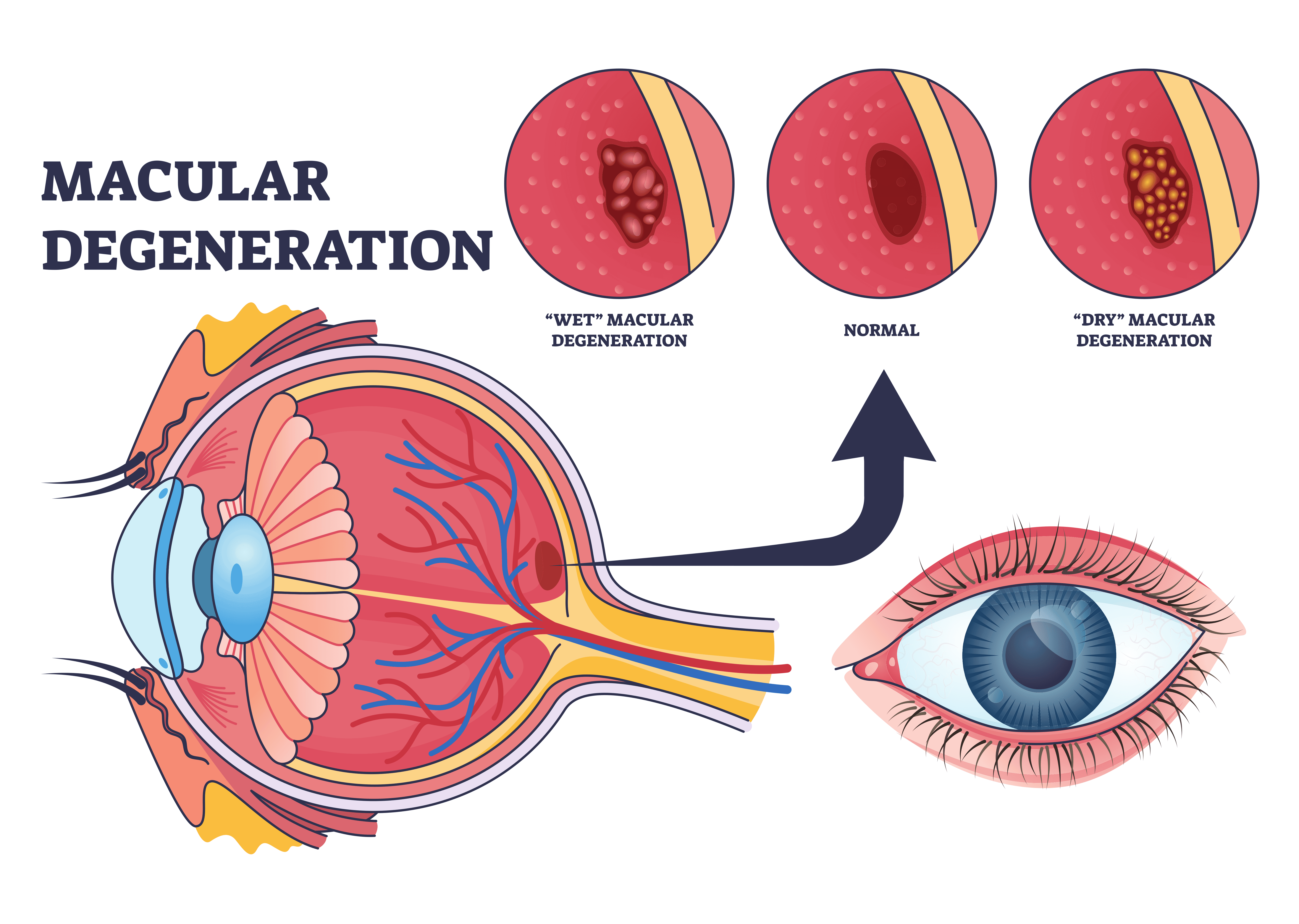Intravitreal Injections for Wet
Macular Degeneration and Diabetes
Intravitreal injections are a highly effective treatment for vision-threatening eye conditions, including wet macular degeneration and diabetic eye disease. These injections deliver medication directly into the vitreous humor, the gel-like substance inside the eye, allowing for precise and targeted treatment. By slowing disease progression, intravitreal injections help preserve vision and improve long-term eye health. Our talented eye doctors at TRES VISION Group are pleased to offer these vision-saving treatments.

Conditions Treated with Intravitreal Injections
- Wet Age-Related Macular Degeneration (AMD): A condition that causes abnormal blood vessel growth in the retina, leading to vision loss.
- Diabetic Retinopathy: A complication of diabetes where damaged blood vessels leak fluid into the retina, impairing vision.
- Diabetic Macular Edema (DME): Swelling of the macula due to leaking blood vessels, which can blur vision and cause blindness if untreated.
Benefits of Intravitreal Injections
– Slows disease progression: Helps prevent further vision loss by controlling abnormal blood vessel growth and reducing fluid leakage.
– Targets the source directly: Delivers medication precisely where needed, increasing effectiveness.
– Minimally invasive: A quick, in-office procedure with no need for surgery.
– Proven success: Most patients experience improved vision or stabilization of their condition.
Types of Intravitreal Injections
Several medications are available to treat wet AMD and diabetic eye conditions, including:
– Anti-VEGF injections (vascular endothelial growth factor inhibitors): Such as Lucentis, Eylea, and Avastin, which reduce abnormal blood vessel growth and leakage.
– Steroid injections: Used primarily for diabetic macular edema, reducing inflammation and swelling in the retina.
– Other emerging treatments: Research continues to advance, bringing new options for retinal disease management.
What to Expect During the Procedure
Intravitreal injections are performed in a sterile office environment and take only a few minutes:
– Eye numbing: Anesthetic drops ensure a pain-free experience.
– Eye cleansing: The eye is cleaned with antiseptic to reduce infection risk.
– Injection: A fine needle delivers the medication into the vitreous humor.
– Post-procedure check: Patients are monitored briefly before leaving.
Intravitreal Injections Recovery and Aftercare
You can typically do normal activities immediately after your procedure. Mild irritation, redness, or temporary blurriness may occur, but these symptoms usually resolve within a day. You should follow these aftercare steps:
– Avoid rubbing your eye for at least 24 hours.
– Use prescribed antibiotic eye drops if provided.
– Monitor for any unusual symptoms such as persistent pain, increased redness, or vision changes, which should be reported immediately.
Cost and Insurance Coverage
The cost of intravitreal injections varies based on the medication used and insurance coverage. Many plans, including Medicare, provide coverage for these injections when deemed medically necessary. Our team at TRES VISION Group can help navigate insurance details and discuss financing options if needed.
Take Control of Your Vision Health
At TRES VISION Group, our experienced eye doctors specialize in treating retinal diseases with advanced therapies like intravitreal injections. If you or a loved one is experiencing vision changes related to wet macular degeneration or diabetes, early intervention is crucial. Schedule a consultation today to explore personalized treatment options and protect your eyesight for the future. Call us in Melbourne & Brevard County, Florida at (312) 984-3200 today.
